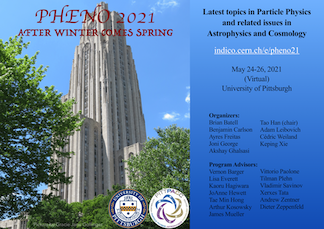Speaker
Description
Aromatic organic compounds, because of their small excitation energies $\sim \mathcal O$(few eV) and scintillating properties, are promising targets for detecting dark matter of mass $\sim \mathcal O$(few MeV). Additionally, their planar molecular structures lead to large anisotropies in the electronic wavefunctions, yielding a significant daily modulation in the event rate expected to be observed in crystals of these molecules. We characterize the daily modulation rate of dark matter interacting with an anisotropic scintillating organic crystal such as trans-stilbene, and show that daily modulation is an $\sim \mathcal O$(1) fraction of the total rate for small DM masses and comparable to, or larger than, the $\sim 10\%$ annual modulation fraction at large DM masses. As we discuss in detail, this modulation provides significant leverage for detecting or excluding dark matter scattering, even in the presence of a non-negligible background rate. Assuming a non-modulating background rate of 1/min/kg that scales with total exposure, we find that a 100${\rm kg \cdot yr}$ experiment is sensitive to the cross section corresponding to the correct relic density for dark matter masses between $1.3-14\;\rm{MeV}$ ($1.5-1000\;\rm{MeV}$) if dark matter interacts via a heavy (light) mediator. This modulation can be understood using an effective velocity scale $v^* = \Delta E/q^*$, where $\Delta E$ is the electronic transition energy and $q^*$ is a characteristic momentum scale of the electronic orbitals. We also characterize promising future directions for development of scintillating organic crystals as dark matter detectors.
